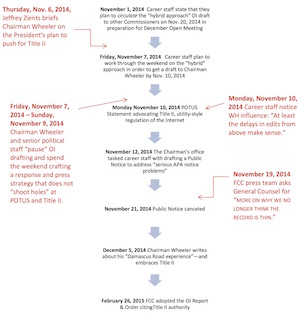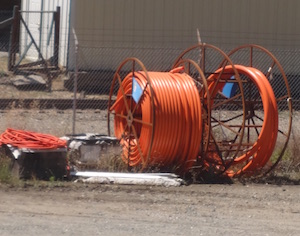ISPs and real estate developers should tango in public

It’s more fun when people watch.
Installing modern broadband infrastructure in newly built housing developments often involves a dance between developers, who increasingly want reimbursement for what they believe to be the full cost, and service providers, who want it as cheap as possible and might not be very interested in the first place.
It’s usually a private negotiation, with the results becoming apparent only after people start moving in. In Gonzales, California for example (full disclosure: the City of Gonzales is a client of mine) new housing developments have been left with conduit installed for cable broadband service but never used.… More


![By No machine-readable author provided. Fernando S. Aldado~commonswiki assumed (based on copyright claims). [Public domain], via Wikimedia Commons](https://www.tellusventure.com/images/2016/2/network_effect.png)





![By Hyderabaduser [GFDL (https://www.gnu.org/copyleft/fdl.html) or CC BY-SA 3.0 (https://creativecommons.org/licenses/by-sa/3.0)], via Wikimedia Commons](https://www.tellusventure.com/images/2016/2/stb_update.jpg)
![By MPD01605 (talk · contribs) (Own work) [Public domain], via Wikimedia Commons](https://www.tellusventure.com/images/2016/2/highway_signs.jpg)